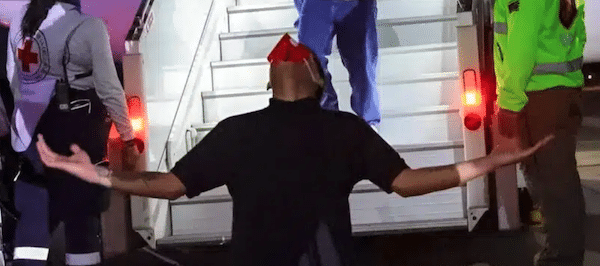“We drank the water with which we bathed because they did not give us drinking water,” said a Venezuelan migrant who was repatriated after having been illegally imprisoned in a high-security prison in El Salvador since March.
He returned on one of the two repatriation flights that brought back the 252 migrants to Venezuela on Friday, July 18. They had been deported from the U.S. and imprisoned in the Confinement Center for Terrorism (CECOT) in El Salvador without due process. Their repatriation was finally possible due to intense diplomatic negotiations by Nicolás Maduro administration with the U.S. authorities.
The testimonies of the repatriates reveal physical abuse and intense psychological torture, especially humiliation due to their nationality and migrant status.
“They tortured us mentally. We had to sleep in a metal cage without sheet or mattresses… they only give us mattresses when the Red Cross came to visit a couple of times,” one migrant said to Telesur. Another, showing his wounds, pointed to his face and exclaimed,
Look, they shot me here!
“This is hell”
Ángel, in his early 20s, hugged his loved ones as he stepped off the plane. After greeting each other, he spoke to Venezuelan television saying,
It was hell.
“When we arrived there that day, March 16, the first person to greet us was the director [of the prison], who said, ‘This is hell,’” Ángel recounted.
If we went to shower, they beat us up, dropped us back in the hole, and beat us again. Many other migrants were shot for trying to have communication with their people outside, which they were never provided.
“Damn you!”
A video showing one of the 252 Venezuelans held captive at the CECOT went viral on social media, following the powerful farewell message he left for the prison officials.
“Damn you!” said Alejandro Colina, one of the Venezuelans unjustly detained in that torture center before he boarded the plane that brought him back to Venezuela.
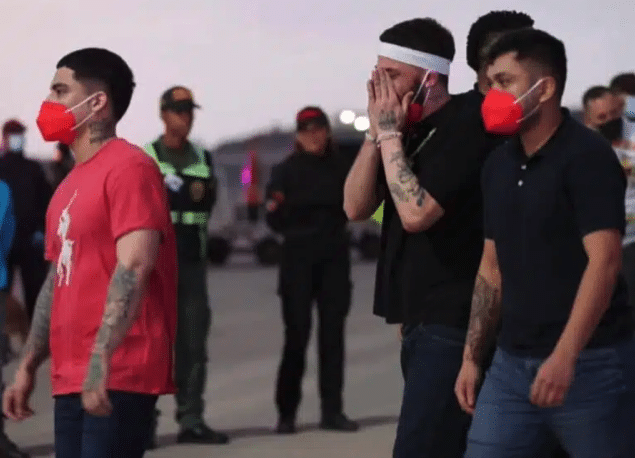
On the plane, he told his story, which coincides with other migrants’ statements about the cruel and inhumane treatment that they received in that maximum-security prison.
In a conversation with Telesur journalist Madelein García, Colina mentioned that one Venezuelan, who suffered from chronic asthma, was tear-gassed by guards.
“They came in, beat him and threw tear gas at this fellow inmate sitting back there in the cell,” he recounted. “He suffers from chronic asthma. He fainted, and all the guards got scared, and we started throwing water bottles at them, throwing everything that we had inside. Everyone got scared. Since they were beating us up, they never imagined that we would rebel. The director came in and asked us to calm down.” He added that they held a hunger strike for three days after this incident.
He further explained how they were threatened with never being able to leave the mega-prison. Colina revealed that he was beaten for telling the officers that it was only a matter of time before President Nicolás Maduro would rescue them all from that hell.
Accused without committing crimes
According to Franco Vielma of the Misión Verdad news outlet, 75% of the 252 repatriated migrants (about 189) have no criminal record. Of the remaining 25%, most have records of minor offenses.
Only six people allegedly committed serious crimes in Venezuela in the past, but none was prosecuted in the U.S. or received convictions there. Several migrants claim that they never even entered U.S. territory. They surrendered to U.S. immigration authorities at the border and were thereafter imprisoned and deported to El Salvador.
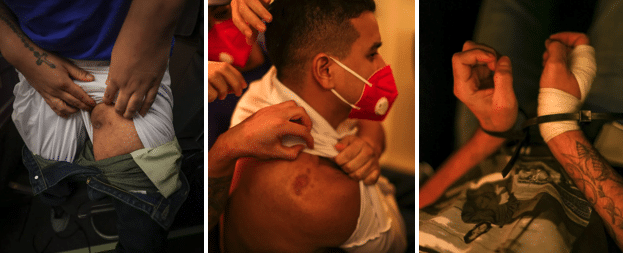
Images of the mistreatment suffered by kidnapped migrants in El Salvador’s maximum-security prison. (Photos: Con el Mazo Dando)
Pellets
Diosdado Cabello, Venezuela’s interior minister, displayed pellet cartridges upon receiving the returnees at Simón Bolívar International Airport.
“This, which I have in my hands, is a testament before the world about the rat that is Nayib Bukele. With this, he bid farewell to young Venezuelans: as they were getting off the buses and boarding the plane, they were shot with several pellets. Several people are injured,” Cabello condemned.
“Many got marks on their backs, split eyebrows, dislocated shoulders, and untreated infections. It was barbaric!” he added.
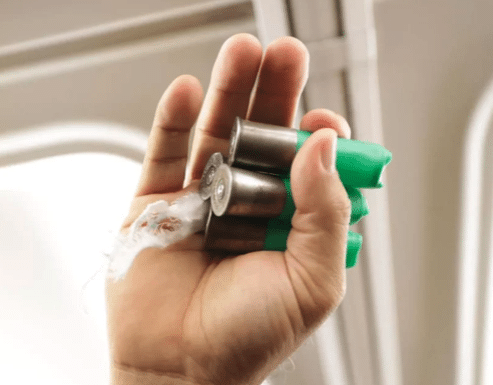
Venezuelan Interior Minister Diosdado Cabello shows pellets with which the returning migrants had been shot in El Salvador just before boarding their repatriation flights. (Photo: Con El Mazo Dando)
For his part, President Maduro revealed that one repatriated prisoner lost a kidney due to beatings he received. “The first testimonies that they have transmitted are that they were savagely tortured in that concentration camp. We are bringing one of them who lost a kidney as a result of the beatings they received. Many were tortured repeatedly. They were served rotten food,” he said.
The Venezuelan president warned,
Bukele should know: sooner rather than later there will be justice for what he has done to these Venezuelans.
The rescue of the 252 migrants marks a new chapter in the fight for the human rights of Venezuelans abroad, while the government demands international responses to what happened.
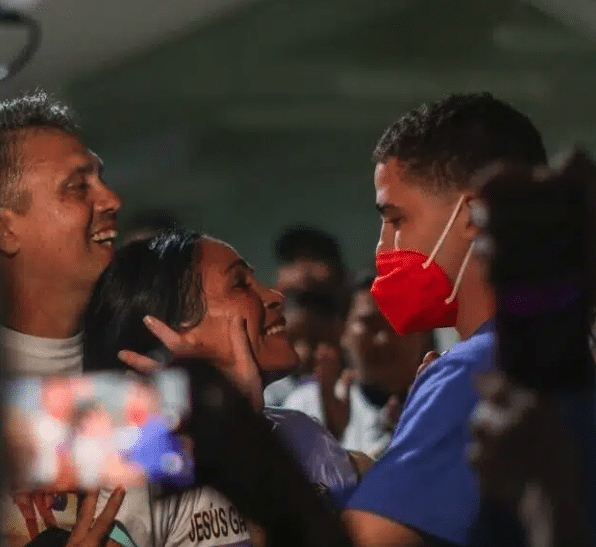
A rescued Venezuelan migrant embraces his family members after returning to the country on Friday. (Photo: Con El Mazo Dando)
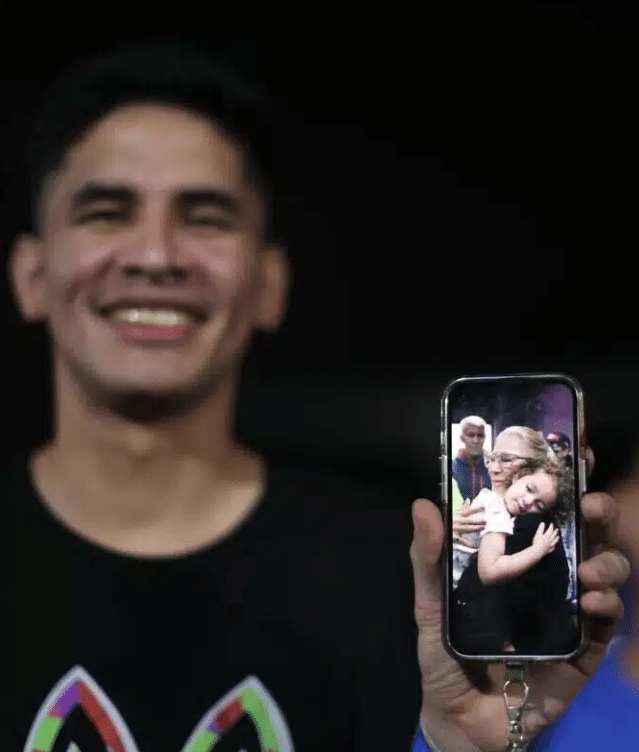
The father of the recently rescued baby Maykelis Espinoza was among those returning home on Friday. (Photo: Con el Mazo Dando)
(Telesur) with Orinoco Tribune content
Translation: Orinoco Tribune

